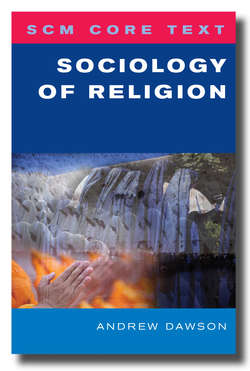Читать книгу SCM Core Text Sociology of Religion - Andrew Dawson - Страница 22
На сайте Литреса книга снята с продажи.
Applied methods
ОглавлениеNot unrelated to these developments, the methods used by sociology to engage the social world have likewise diversified. Although the importance to sociology of understanding the motivations and intentions of individual social actors was emphasized by the German social thinker Max Weber (1864–1920), subsequent generations of sociologists failed to develop this insight. Reflecting both functionalist and Marxist preoccupations, many sociologists became overly concerned with analysing macro-structural processes (e.g. urbanization) and institutional dynamics (e.g. integration) to the detriment of engaging the micro-social encounters of individual agents. As a consequence, sociology became heavily reliant upon large-scale, quantitative methods by which the data it needed to understand macro-structural and institutional processes could be gathered. During this time, a minority of social scientists (such as symbolic interactionists and ethnomethodologists) continued to concern themselves with understanding the everyday micro-social interactions through which individuals pass and by which they both sustain their lives and render them meaningful. Given their micro-social focus, these sociologists championed a range of qualitative methods, which they used to engage both the processes of interpersonal encounter and the subjective interpretations thereof by the individuals involved in them.
Within sociology today, qualitative methods such as interviews and discourse analysis enjoy an established place alongside quantitative methods such as questionnaires and statistical analysis. Of course, different types of method lend themselves to acquiring and interpreting different kinds of data and are thereby more or less suited to engaging different sorts of social processes and dynamics. For this reason, many forms of sociological enquiry employ ‘mixed methods’ approaches which combine both quantitative and qualitative modes of capturing and analysing data. Irrespective of the methods employed, however, fruitful sociological enquiry relies upon an awareness of their respective strengths and weaknesses; not least as they pertain to what kinds of data are sought, where they are found and how they are captured (Bryman, 2004; Robson, 2002).
